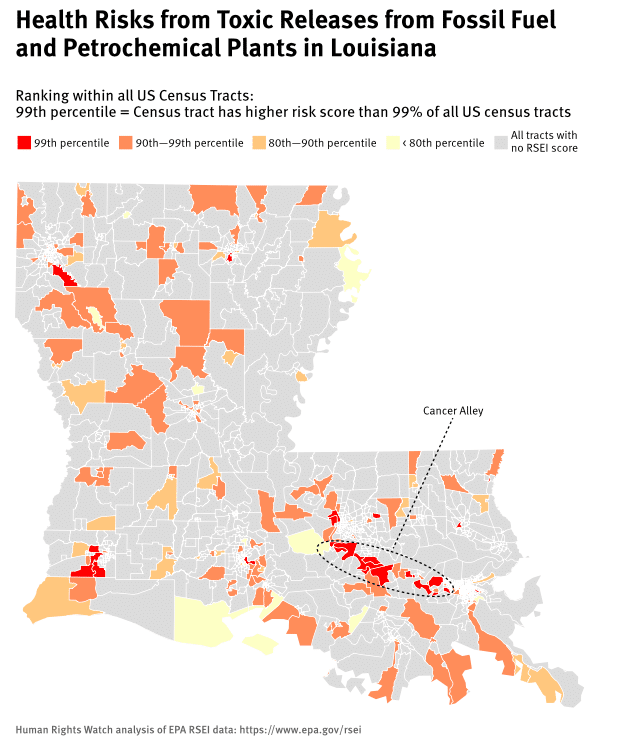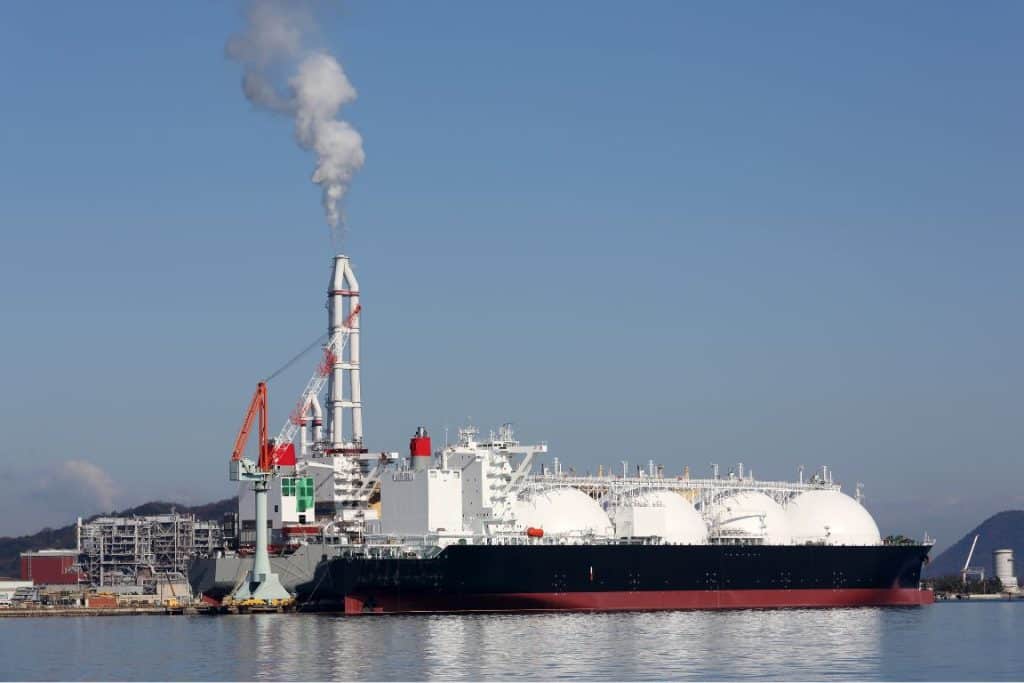The US began exporting liquified natural gas (LNG) in 2016 and is currently the world’s largest exporter of the planet-warming fuel.
—
The Biden administration announced on Friday a “temporary” pause on pending liquified natural gas (LNG) export permits to allow the Department of Energy (DOE) to review their economic and environmental impacts.
The pause will allow officials to update the way the DOE analyzes LNG proposals to avoid authorizing projects that diminish the country’s energy availability, weaken security, or undermine the US economy and environment, according to a statement by the White House.
“This pause on new LNG approvals sees the climate crisis for what it is: the existential threat of our time,” the statement read.
The decision, which impacts a dozen planned gas export terminals, follows a months-long campaign by climate activists and local residents to curb LNG exports, which contribute to global warming and air pollution. In October 2023, former Environmental Protection Agency (EPA) official Jeremy Symons told the Guardian that current planned terminals could result in an additional yearly 3.2 billion tonnes of greenhouse gases (GHG) – approximately the equivalent of the European Union’s annual emissions.
The US began exporting LNG in 2016 and in 2023, it became the world’s largest exporter, owing to overall increased processing efficiency as well as the return to full production of the Freeport LNG plant, which had suffered a fire in 2022. Yearly exports from the US last year hit a record high of 88.9 million metric tons, up 14.7% from the year prior, and are expected to double by the end of this decade.
The majority of exports last year went to European countries that were battling with the ongoing energy crisis sparked by Russia’s invasion of Ukraine in 2022. In a fact sheet, the White House reassured the pause “will not impact [the US] ability to continue supplying LNG to [its] allies in the near-term” as projects that have already been approved will go ahead as planned.
In a letter addressed to US DOE Secretary Jennifer Granholm, a coalition of oil and gas industry groups opposing the decision said a pause on US LNG export approvals “would only bolster Russian influence and undercut President Biden’s own commitment to supply our allies with reliable energy, undermining American credibility and threatening American jobs.”

Several environmental and advocacy groups praised the announcement.
“This announcement from the Biden administration is truly monumental for our communities,” said Roishetta Ozane, an environmental activist and founder and director of the Louisiana-based mutual aid organization Vessel Project in Louisiana, where much of the LNG buildout is happening. “As someone who has witnessed the devastating impacts of fossil fuel extractive industries, I am filled with hope and gratitude for this important step towards justice.”
An area of Louisiana covering an 85-mile (137-kilometre) stretch along the Mississippi River, from New Orleans to Baton Rougel, where communities exist side by side with some 200 fossil fuel and petrochemical plants, has been nicknamed “Cancer Alley.” The term is not only jarring in its sound but it also detrimentally changed the way residents live their lives.
According to a report by Human Rights Watch released last week, Louisiana residents suffer serious health issues – including elevated rates and risks of maternal, reproductive, and newborn health harms, cancer, and respiratory ailments – as a result of the extreme pollution created by the industry, with some parts of Cancer Alley seeing the highest risk of cancer from industrial air pollution in the US.
The report found that fossil fuel and petrochemical facilities account for a staggering 97% of the risks to human health from industrial air pollution in Louisiana.

“The fossil fuel and petrochemical industry has created a ‘sacrifice zone’ in Louisiana,” said Antonia Juhasz, senior researcher on fossil fuels at Human Rights Watch. “The failure of state and federal authorities to properly regulate the industry has dire consequences for residents of Cancer Alley.”
You might also like: US Ends Cancer Alley Investigation: Will Environmental Racism Ever Find Justice?


















